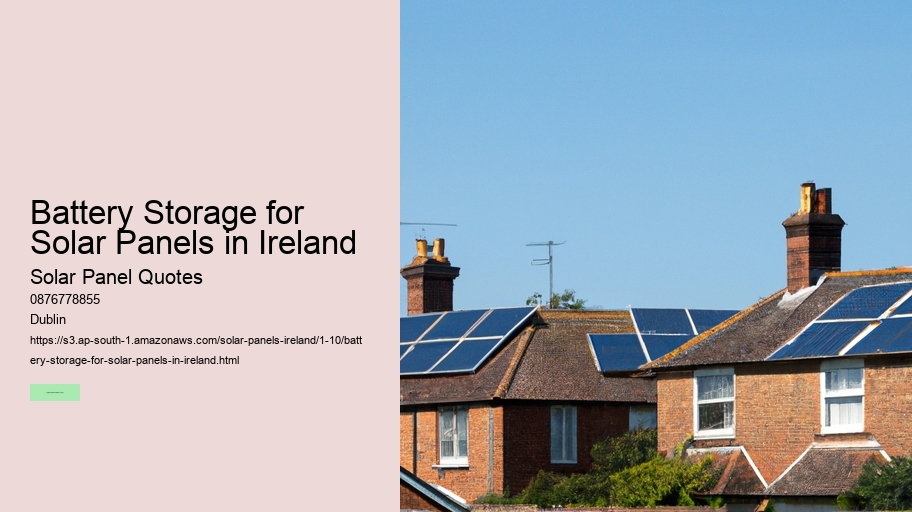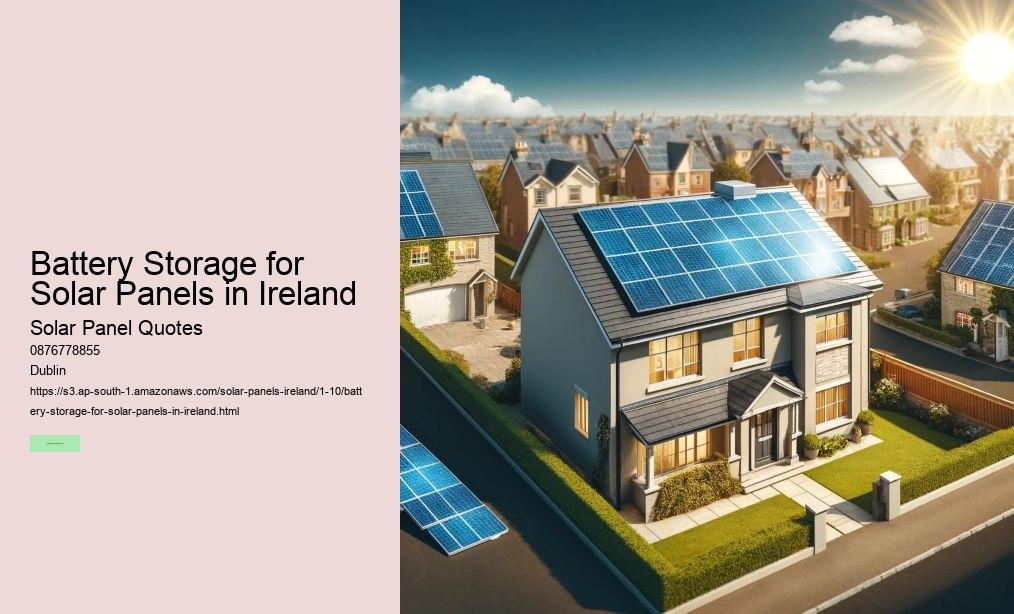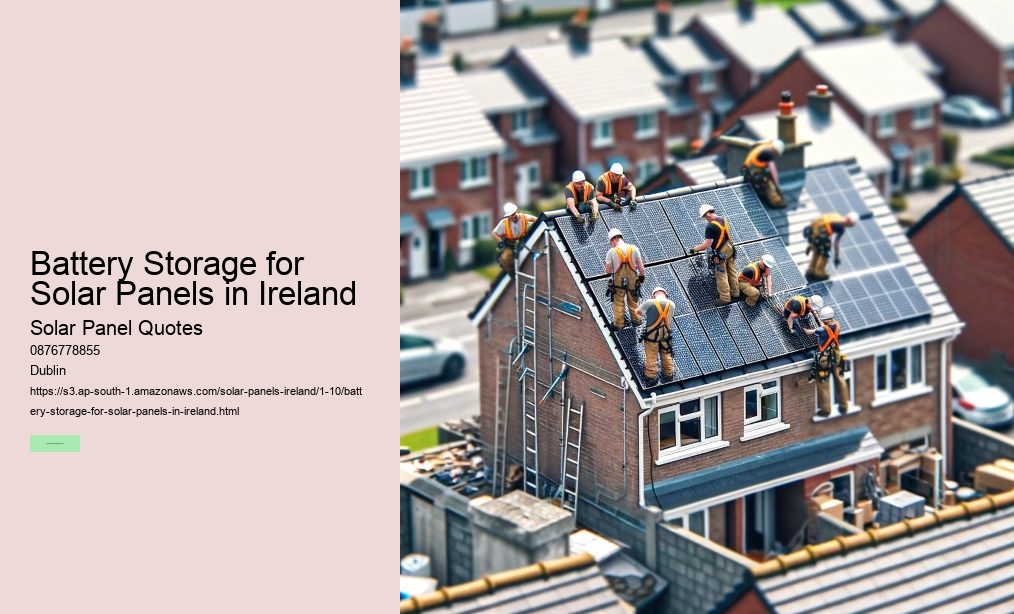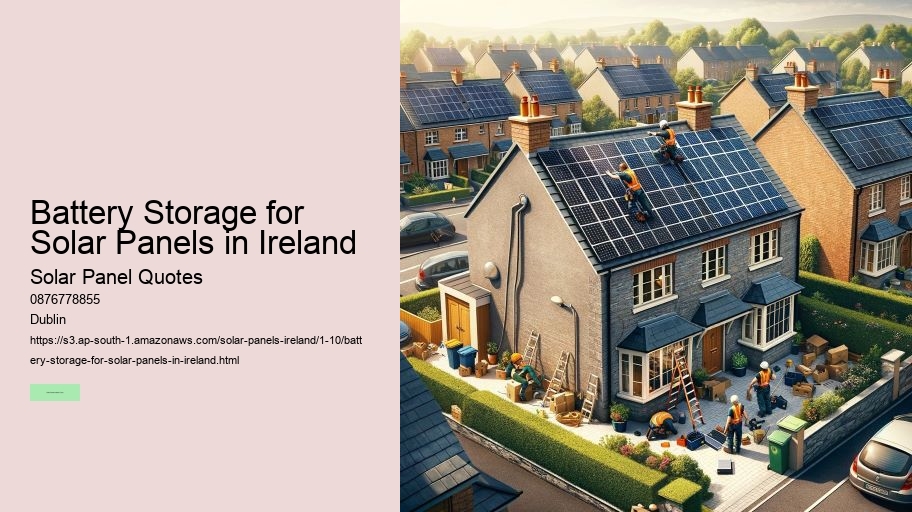

For a standard three-bedroom home, these costs are offset by grants and incentives, making solar power increasingly accessible. Solar panels have gained popularity in Ireland due to advancements in photovoltaic systems and supportive government initiatives. For those considering solar panel installation, the combination of financial incentives, advanced technology, and environmental benefits creates a compelling case.
During this time, the cost of installation is recovered through savings on electricity bills and potential earnings from selling excess energy back to the grid. looking for the cheapest solar panel ireland cost then checkout solar panel quotes. By installing a rooftop photovoltaic system, you take an active role in reducing your carbon footprint and supporting Ireland's energy transition.
The efficiency of solar panels has improved significantly over the years. By choosing solar energy, homeowners not only save money but also take an active role in shaping a more sustainable future.
Adding a rechargeable battery to the system allows surplus electricity generated during the day to be stored for later use, reducing reliance on the electrical grid. While the initial investment might appear significant, the benefits-ranging from lower electricity bills to a reduced carbon footprint-make solar panels a smart, sustainable choice.
A photovoltaic system provides multiple benefits beyond electricity generation. Homes equipped with renewable energy systems like rooftop photovoltaic systems or solar thermal collectors are more attractive to buyers, offering reduced energy costs and an environmentally friendly footprint. The Sustainable Energy Authority of Ireland (SEAI) offers grants of up to €2,400 for solar PV installations, significantly reducing upfront expenses.
The integration of solar panels with other modern technologies, such as smart meters and energy-efficient appliances, creates a cohesive energy ecosystem. This range varies depending on factors such as the size of the photovoltaic system, the type of solar panels used, and additional features like batteries, inverters, or optimizers to counteract shading.
After the payback period, homeowners enjoy up to two decades of reduced or free electricity. For properties with limited roof space or shading challenges, thin-film solar cells or shading optimizers can enhance energy efficiency.
Solar panels also integrate seamlessly with other energy-efficient technologies. These supports align with Ireland's commitment to sustainable energy development and reducing greenhouse gas emissions.
Excess energy can be stored in batteries or exported back to the grid, creating additional savings or income through feed-in tariffs. Advances in technology, particularly in monocrystalline silicon panels, allow for greater energy production within smaller areas. By generating clean, renewable energy, solar power reduces your household's carbon footprint and helps combat climate change.
Polycrystalline silicon panels offer a cost-effective solution with slightly lower efficiency, while Thin-film solar cells can be a practical option for specific applications. On average, homeowners in Ireland recover their initial investment in five to seven years through reduced electricity bills and earnings from exporting excess electricity to the grid via the Microgeneration Support Scheme.
The inclusion of optimizers for shading or advanced solar inverters can also affect the overall price. By choosing solar panels, homeowners in Ireland can harness the power of the Sun to meet their energy needs.
The benefits of solar panels extend beyond individual households. When considering the transition to renewable energy, understanding the cost of solar panels in Ireland is a key step.


They also complement electric vehicles and battery chargers, offering a cohesive solution for sustainable energy needs. For most homes, the number of solar panels required depends on factors like electricity consumption, roof size, and orientation. Solar panels are designed for durability, with most manufacturers offering warranties of 20 to 25 years.

Durability is another advantage of modern solar panels. Batteries also provide backup power during outages, ensuring consistent energy availability. The cost of electricity by source continues to rise, making solar energy an increasingly attractive alternative.
By generating electricity from sunlight, homeowners reduce greenhouse gas emissions and their dependence on fossil fuels. When choosing a solar panel provider, it's important to consider experience, certifications, and customer reviews.
While not essential for all installations, batteries provide flexibility and resilience. Battery storage is another key consideration.
The role of solar in reducing the carbon footprint of homes and businesses cannot be overstated. Smart meters track energy production and consumption, enabling homeowners to monitor their systems efficiently.

Microgeneration empowers homeowners to take control of their energy usage.
While fossil fuel prices fluctuate, solar panels provide predictable savings and a defined payback period, usually between five to seven years. These features make it easier for homeowners to manage their energy systems and maximize savings. During this time, homeowners recoup their initial investment through energy savings and, in some cases, income from selling excess electricity back to the grid.
Optional features, such as shading optimizers or advanced inverters, can improve performance while adding to the initial investment. Regular cleaning and occasional inspections ensure that the panels operate at peak efficiency.
The cost of installing solar panels in Ireland typically ranges between €6,000 and €18,000. With support from SEAI grants, zero VAT, and the feed-in tariff system, switching to solar energy has never been more accessible.
Regular cleaning to remove dirt and debris ensures optimal performance, while modern systems are designed to last for 20 to 25 years or more. Any surplus energy generated can be stored or sold back to the grid, further lowering costs and supporting sustainable energy development.

Solar panels typically pay for themselves within 5 to 7 years in Ireland through savings on electricity bills.
Solar panels require minimal maintenance, primarily involving regular cleaning and periodic checks to ensure they are functioning optimally.
Yes, the Irish government offers several incentives, including SEAI grants and a reduction in VAT on solar equipment to promote solar energy adoption.
Yes, there are several financing options available in Ireland for solar panel systems, including loans, leases, and Power Purchase Agreements (PPAs).
Monocrystalline solar panels offer high efficiency and longevity, making them ideal for maximizing output in areas with limited space.
Monocrystalline solar panels offer high efficiency and longevity, making them ideal for maximizing output in areas with limited space.
The average cost of installing solar panels in Ireland ranges from €6,000 to €18,000, depending on the size and specifications of the system.
Yes, the Irish government offers several incentives, including SEAI grants and a reduction in VAT on solar equipment to promote solar energy adoption.